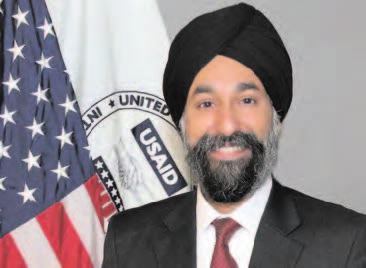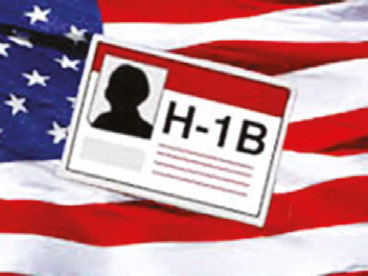
For the past 5 months, thousands of recent foreign science, technology, engineering, and mathematics (STEM) graduates of U.S. universities who hold jobs in the United States under a program known as Optional Practical Training (OPT) have worried that their permission to remain in the country would expire on 12 February because of an August 2015 ruling from U.S. District Judge Ellen Segal Huvelle.
On 23 January, U.S. District Judge Ellen Segal Huvelle granted the Department of Homeland Security’s request that the ruling be stayed for an additional 90 days, which the agency argued would give it time to implement a new proposed rule for the program and prevent disruption or hardship for participating students and employers.
“The significance of that hardship cannot be overstated,” Judge Huvelle wrote. “According to DHS, there are approximately 23,000 STEM OPT participants, 2,300 dependents of STEM OPT participants, 8,000 pending applications for STEM OPT extensions and 434,000 foreign students who might be eligible to apply for STEM OPT authorizations … If the stay is not extended, many of these people would be adversely affected, either by losing their existing work authorization, not being able to apply for the OPT extension or not knowing whether they will be able to benefit from the extension in the future. And of course, the U.S. tech sector will lose employees, and U.S. educational institutions could conceivably become less attractive to foreign students.”
- On February 5, 2016, DHS sent the final STEM OPT rule to OMB for review. This is the last phase of review before the rule is published in the Federal Register.
- DHS had previously announced an intention to have an effective date 60 days after the Federal Register publication date. The final rule would have to be published by about March 10, 2016 to accommodate the May 10, 2016 vacatur date of the current rule.
- On January 23, 2016, the District Court granted DHS’s motion to extend the stay of the vacatur of the STEM OPT rule from February 12, 2016 until May 10, 2016.
- On January 14, 2016, DHS filed a response brief to WashTech’s January 11, 2016 response, arguing that the district court does have jurisdiction to extend its stay of vacatur through May 10, 2016, and asking the court to reject WashTech’s opposition brief. In addition, DHS made the following important request in its brief: “”In the event the Court denies DHS’s Rule 60(b)(6) motion, the agency respectfully requests that the Court clarify that its vacatur will not affect the legal status of F-1 students holding unexpired employment authorization documents (“EADs”) granted under the 2008 STEM OPT Extension rule, and their dependents. Such an order of clarification is appropriate in light of the interests of many F-1 students, their schools, and their employers, and would help DHS ensure that it is in full compliance with the Court’s order. Moreover, it will assist interested parties greatly as this case continues to move forward.” DHS also asked the district court to issue a decision on its motion to extend the vacatur date “as expeditiously as possible.
- On January 11, 2016, the Washington Alliance of Technology Workers (WashTech) filed a response to DHS’s December 22, 2015 motion, arguing that the District Court should not grant the extension until May 10, 2016 that DHS requested in its motion.
- On December 24, 2015, the court granted a WashTech motion for an extension of time to respond to DHS’s December 22, 2015 motion. The court granted WashTech until January 11, 2016 to respond to the DHS motion.
- On December 22, 2015, after receiving over 50,000 comments on the proposed rule, DHS moved the WashTech court to extend the stay on the vacatur of the current STEM OPT rule from February 12, 2016 until May 10, 2016, to provide for “approximately 30 days to complete the rulemaking and 60 days for a delayed-effective-date period, under which DHS would train agency personnel and coordinate with the regulated community.” Read the December 22, 2015 DHS motion to extend the stay on the court’s original vacatur order. If the court does not grant DHS’ motion to extend the stay of vacatur, the current rule would expire effective February 13, 2016, and DHS suggested that it may have to consider options like returning any pending STEM OPT applications and requiring that applicants refile after the effective date of a final rule.
- On October 19, 2015, the Department of Homeland Security published the much-anticipated proposed STEM OPT rule. The public will have 30 days (until November 18) to comment on the proposed rule. Many of NAFSA’s longstanding priorities are addressed, but there are also some additional obligations.
- On August 18, 2015, the Washington Alliance of Technology Workers (WashTech) filed a notice of appeal with the United States Court of Appeals for the District of Columbia Circuit [Civil Action No. 1:14-cv-529]. It is likely that WashTech will challenge the District Court’s August 12, 2015 determination that establishing the STEM OPT benefit in 2008 was within the scope of DHS’s regulatory authority.
- In an August 12, 2015 opinion and order, the United States District Court for the District of Columbia found that DHS’ failure to provide notice and invite public comment at the time of the 2008 STEM OPT extension rule was “a serious procedural deficiency” that merits “vacatur” (i.e., rescinding, setting aside, annulling) the STEM OPT extension. It is important to note that the court found that establishing the STEM OPT benefit itself in 2008 was within the scope of DHS’s regulatory authority, and that the court’s decision to vacate was based on the procedural deficiency only. The judge’s vacatur order specifically references only “the 17-month STEM extension described at 73 Fed. Reg 18,944 (Apr. 8, 2008),” and so it is unclear what impact, if any, the order will have on parts of the 2008 rule other than the 17-month STEM extension. In any case, DHS has been working on publishing a new STEM OPT regulation to cure the procedural defects of the 2008 rule and to address other issues raised with STEM OPT.
- In a June 8, 2015 letter to DHS Secretary Jeh Johnson, Senator Charles Grassley (R-Iowa) expressed concern “about the Department’s plans to expand the Optional Practical Training (OPT) program,” and urged DHS “to reconsider expanding the program without adding adequate controls and safeguards.” See Senator Grassley’s website for details.
The OPT program permits foreign students and recent graduates to work in the United States under their existing F-1 student visas rather than requiring a work visa, such as the H-1B, which can be very difficult to obtain. Reporting may appear to suggest that Huvelle’s recent ruling assures that the regulations currently governing the program will remain intact at least until the 10 May deadline, but this is not necessarily so. According to a lawyer familiar with these issues, a “tangle” of motions and appeals concerning OPT are now pending in a pair of federal courts in Washington, D.C. The situation, therefore, has actually become more rather than less confused and uncertain.





Be the first to comment